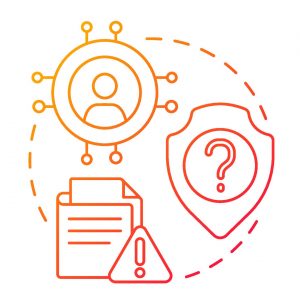Google, one of the world’s leading technology companies, is taking a bold step into the realm of healthcare with its latest artificial intelligence (AI) program. To outpace competitors like Microsoft, Google has developed an advanced AI chatbot called Med-PaLM 2, specifically trained to tackle medical questions. This breakthrough technology has garnered attention from health systems across the United States, as it holds the potential to revolutionize patient care. However, as Google moves into the healthcare industry, it must address concerns related to patient data privacy and the accuracy of AI-generated responses.
Also Read: Machine Learning & AI for Healthcare in 2023

Google’s AI Program Aims to Revolutionize Medical Q&A
Google has been rigorously testing an AI program known as Med-PaLM 2. This chatbot is designed to expertly answer medical questions, putting it in direct competition with Microsoft and other industry rivals. By leveraging the underlying technology of LLM, Google aims to integrate its AI capabilities into patient care across various health systems.
Also Read: ChatGPT Outperforms Doctors in Providing Quality Medical Advice
Unique Approach: Med-PaLM 2’s Medical Expertise
What sets Med-PaLM 2 apart from more general-purpose algorithms is its specialization in healthcare. Google’s chatbot has been trained on a vast array of questions and answers derived from medical licensing exams. This specialized training equips Med-PaLM 2 with a deeper understanding of healthcare issues, enabling it to hold more nuanced conversations on medical topics.
Also Read: Breaking Barriers: ChatGPT’s Radiology Exam Triumph and Limitations Unveiled!

Collaboration with Mayo Clinic and Early Testing
To validate the effectiveness of Med-PaLM 2, Google initiated testing with reputable institutions like the Mayo Clinic. This research hospital, renowned for its medical expertise, collaborated with Google in April to explore the potential applications of the AI program. Mayo Clinic’s involvement demonstrates the medical community’s interest in AI’s role in advancing patient care.
Also Read: J&K Government Set to Revolutionize Healthcare with Artificial Intelligence
Extensive Capabilities: Beyond Q&A
Med-PaLM 2 offers more than just answering medical questions. Google executives and published research by the company reveal that the chatbot can generate responses to complex medical queries and also perform tasks such as summarizing documents and organizing extensive amounts of health data. These capabilities position Med-PaLM 2 as a versatile tool for healthcare professionals.
Also Read: Carbon Health Revolutionizes Healthcare with AI Charting in Its EHR

The Healthcare Industry’s AI Battleground
The healthcare industry has become an arena where tech giants and startups compete for customers with AI offerings. However, previous initiatives, such as IBM’s Watson Health, have struggled to translate advanced technology into sustainable profits. This new wave of medical AI, led by Google, represents a fresh opportunity for transformative breakthroughs.
Also Read: AI Technology to Revolutionize Patient Care
Ethical Considerations and Patient Consent
While generative AI presents incredible medical potential, medical leaders and ethicists emphasize the importance of informed consent and transparency. Patients must know how their health data is used in AI tools. Google’s past partnerships with hospitals have drawn scrutiny regarding the handling of sensitive health data, making transparency and privacy paramount in this endeavor.
Balancing Authority and Responsibility
AI algorithms are already deployed in hospitals for specialized tasks, such as predicting heart issues from electrocardiograms. However, generative AI tools like Med-PaLM 2 introduce new risks, as they can produce authoritative responses to medical questions. This potentially influences patients in ways that may not align with medical best practices. Striking the right balance between AI’s capabilities and doctors’ expertise is a challenge that needs careful consideration.

Privacy Assurance and Data Control
Google executives assure customers they will retain control of their encrypted data, inaccessible to the tech company. Med-PaLM 2 does not ingest any patient data, addressing concerns related to data privacy. However, Google remains tight-lipped about when the program will be widely available to the public.
Also Read: All Your Online Posts Now Belong to the AI, States Google
Our Say
Google’s foray into medical AI with Med-PaLM 2 marks a significant step in the company’s ongoing competition with Microsoft and other tech giants. While the potential benefits are immense, concerns about patient data privacy and the accuracy of AI-generated responses remain. As Google strives to navigate these challenges and deliver a safe and effective AI solution, the healthcare industry eagerly anticipates the next breakthrough to transform patient care.




